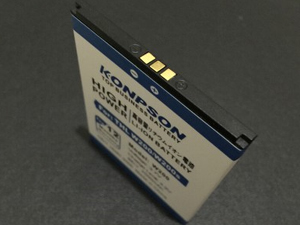



Date:19/12/16
 Liquid lithium-ion batteries are the most common kind of rechargeable batteries used in our electronic devices as they offer a high energy density, stable energy capacity, and low self-discharge for little cost. However, they’re also extremely flammable as we witnessed from the recent Samsung Galaxy Note 7 explosions.
Liquid lithium-ion batteries are the most common kind of rechargeable batteries used in our electronic devices as they offer a high energy density, stable energy capacity, and low self-discharge for little cost. However, they’re also extremely flammable as we witnessed from the recent Samsung Galaxy Note 7 explosions.
Scientists have been working on finding a less volatile alternative to the flammable liquid electrolytes in these batteries for a long time, and now researchers at Stanford University have used artificial intelligence to identify over twenty solid electrolytes that might just do the trick.
According to the lead author of the study, Austin Sendek, the main advantage these solid electrolytes have over the liquids we’re currently using is that they’re more stable and “far less likely to blow up or vaporize than organic solvents. They're also much more rigid and would make the battery structurally stronger.“
To find a solid alternative that’s as affordable and performs as well as liquids, the researchers turned to AI and machine learning. They trained a computer algorithm to learn how to identify good and bad compounds based on data they had gathered.
Sendek said that there are tens of thousands of known lithium-containing compounds, “the vast majority of which are untested.” By developing a computational model that was able to learn from their collected data, the researchers were able to screen potential materials “about a million times faster” than other screening methods allowed.
Sendek spent over two years gathering all known data about the 12,000 solid compounds that contained lithium and it took the algorithm only a few minutes to screen them and determine which ones would be good electrolytes.
The algorithm used several criteria to make its decisions including stability, cost, abundance and their ability to conduct lithium ions and re-route electrons through the battery's circuit. In the end it came up with 21 realistic alternatives and the researchers will now begin to test the viability of using them in real world conditions.
Scientists are turning to AI to create safer batteries
 Liquid lithium-ion batteries are the most common kind of rechargeable batteries used in our electronic devices as they offer a high energy density, stable energy capacity, and low self-discharge for little cost. However, they’re also extremely flammable as we witnessed from the recent Samsung Galaxy Note 7 explosions.
Liquid lithium-ion batteries are the most common kind of rechargeable batteries used in our electronic devices as they offer a high energy density, stable energy capacity, and low self-discharge for little cost. However, they’re also extremely flammable as we witnessed from the recent Samsung Galaxy Note 7 explosions.Scientists have been working on finding a less volatile alternative to the flammable liquid electrolytes in these batteries for a long time, and now researchers at Stanford University have used artificial intelligence to identify over twenty solid electrolytes that might just do the trick.
According to the lead author of the study, Austin Sendek, the main advantage these solid electrolytes have over the liquids we’re currently using is that they’re more stable and “far less likely to blow up or vaporize than organic solvents. They're also much more rigid and would make the battery structurally stronger.“
To find a solid alternative that’s as affordable and performs as well as liquids, the researchers turned to AI and machine learning. They trained a computer algorithm to learn how to identify good and bad compounds based on data they had gathered.
Sendek said that there are tens of thousands of known lithium-containing compounds, “the vast majority of which are untested.” By developing a computational model that was able to learn from their collected data, the researchers were able to screen potential materials “about a million times faster” than other screening methods allowed.
Sendek spent over two years gathering all known data about the 12,000 solid compounds that contained lithium and it took the algorithm only a few minutes to screen them and determine which ones would be good electrolytes.
The algorithm used several criteria to make its decisions including stability, cost, abundance and their ability to conduct lithium ions and re-route electrons through the battery's circuit. In the end it came up with 21 realistic alternatives and the researchers will now begin to test the viability of using them in real world conditions.
Views: 434
©ictnews.az. All rights reserved.Similar news
- Azerbaijani project to monitor disease via mobile phones
- Innovative educational system to be improved under presidential decree
- NTRC prolongs license of two TV and radio organizations for 6 years
- Azerbaijan establishes e-registry for medicines
- Azerbaijani museum introduces e-guide
- Nar Mobile opens “Nar Dunyasi” sales and service center in Siyazan city
- International conference on custom electronic services held in Baku
- OIC secretary general to attend COMSTECH meeting in Baku
- Azerbaijan develops earthquake warning system
- New law to regulate transition to digital broadcasting in Azerbaijan
- Azerbaijani State Social Protection Fund introduces electronic digital signature
- Intellectual traffic management system in Baku to be commissioned in December
- Tax Ministry of Azerbaijan started receiving video-addresses
- World Bank recommends Azerbaijan to speed up e-service introduction in real estate
- Azerbaijan to shift to electronic registration of real estate





















